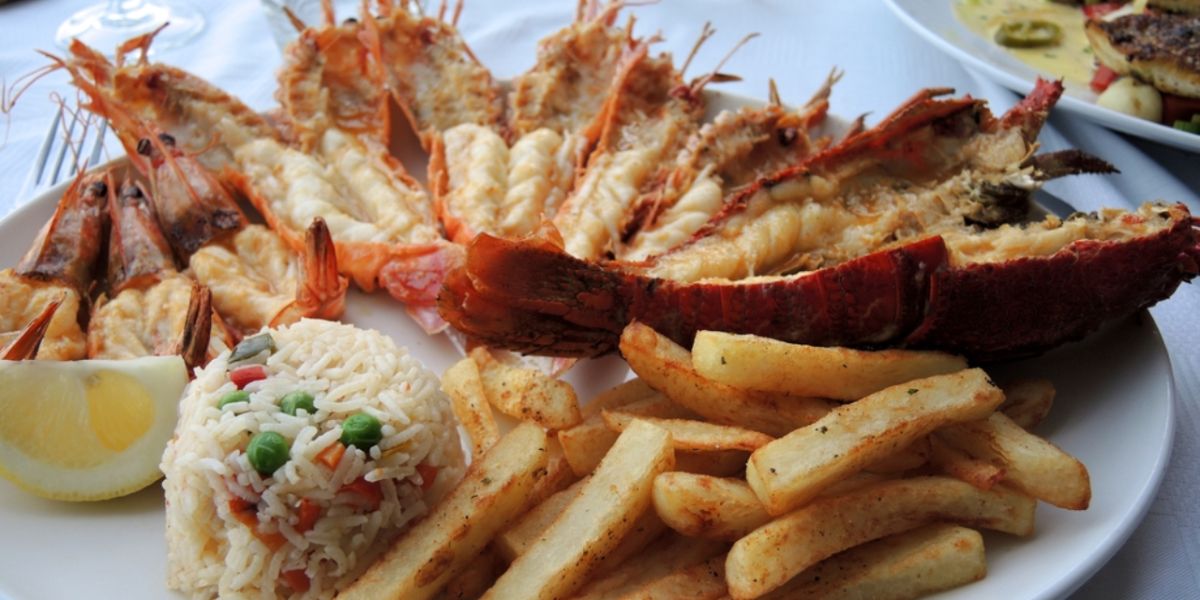
The multicultural heritage of South Africa is reflected in its gastronomy. Cape Town, with its many restaurants and vineyards, is considered the country's gastronomic capital.
The wines in Cape Town
The Cape Province is the cradle of the South African wine industry. The most famous vineyards of the country are found here, and 80% of South African wines are produced in this region which enjoys ideal climatic conditions.
Using almost only international grape varieties for its production, we find all types of wines: Chardonnay, Sauvignon, Pinot, Cabernet, etc.
There are 5 main wine regions around Cape Town:
- Constantia whose vineyards are among the oldest in the country and which is famous for its Sauvignon Blanc
- Franschhoek which has many quality vineyards producing Cabernet Sauvignon and Chardonnay.
- Paarl, whose Syrah, Merlot and Cabernet Sauvignon are internationally renowned.
- Stellenbosch, which has the largest number of productions and is renowned for its red wines.
- Swartland, once known for producing only low-end wines but now producing some of the best Syrah and Chenin Blanc.
Even if you're not a wine lover, the wine route offers not only Cape Dutch-style winery tours but also historical tours, museums, hiking, mountain biking and excellent restaurants.
Cape Town is not only for wine lovers. There are also many breweries and gin distilleries. The city is now the craft beer capital of South Africa. Tours of distilleries and breweries are organized from Cape Town (Craft Beer safari by Kiffkombitours).
The local cuisine in Cape Town
Cape Town has a rich multicultural heritage which is reflected in its diverse local cuisine. There are no traditional dishes but rather a mixture of African, Anglo-Saxon, Dutch and Indian culinary traditions.
The inhabitants of Cape Town also appreciate fresh fish and seafood.
South Africans are big meat lovers, and Braai is an institution. It is not only a barbecue but a social event where families and friends get together to spend a convivial moment. And a Braai would not be a Braai without Boerewors, beef and pork sausages seasoned with coriander and nutmeg. The meats are usually accompanied by pap (a kind of corn-based polenta, the culinary staple of the black community) and a spicy tomato sauce. Exotic game is widely available: crocodile, kudu, ostrich, springbok, elk and gemsbok, but because of its price, it is reserved for special occasions. The braai tradition is so popular that South African Heritage Day is called "Braai Day".
South Africans are also very fond of biltong, a typical South African dried and salted meat that is eaten as a snack and is made from beef but also from other meat such as kudu, springbok, or ostrich. Biltong and Droewors (small dry sausages) are part of all South African appetizers. The process of drying meat was developed by the Afrikaners in order to preserve the meat during the Great Trek (migration of Boer farmers from the Cape Colony to the interior in the 1830s).
Is there a street food culture in Cape Town?
Street food is not really present in Cape town. It only offers Fish and Chips, a heritage of its British colonial history, which is very popular and can be prepared with hake or snoek, Gatsby, a large sandwich filled with meat, French fries, egg, salad and sauce and braais, especially in the townships.
International cuisine in Cape Town
The Cape Malay cuisine, specific to the Cape (inherited from slaves brought back from Southeast Asia between the 17th and 18th centuries), is an important part of the culture and heritage of Cape Town. Its most famous specialties are the Bobotie, a curry made of minced meat and egg cream, flavored with spices and dried fruits, and the Bunny chow (a dish with Indian influences), which is a half loaf of bread hollowed out and filled with curry.
Koesisters, fried dumplings flavored with cinnamon and various spices and coated with shredded coconut, are the signature dessert of Cap Malay cuisine.
Afrikaans has also influenced South African cuisine with braai, potjie stew made of several layers of meat, vegetables and spices cooked in a pot and simmering for several hours over a wood fire, milktaart (milk and cinnamon pie) and waterblommetjie bredie, which is an iconic Cape Town dish. It is a stew of lamb and water blossoms that are harvested in the Boland region. This typical Western Cape dish is only eaten from July to September.
Cape Town, a dynamic, trendy and gourmet city, is at the forefront of culinary trends. The city's restaurants offer great diversity and excellent value for money. South Africa has welcomed many immigrant communities: Portuguese from Mozambique during the civil war, Italians and Greeks after the Second World War, and their cuisine can be found in the city's restaurants as well as others such as Thai, Chinese, Mexican, and many others.
The tipping culture in Cape Town
It is important to know that waiters are mainly paid by tips, so the service is usually very good. The tip is to be added to the bill (line provided for this purpose) and goes from 15% if you are satisfied to 5% if the service was not up to par.
With the impact of Covid and lockdowns, many restaurants have closed or changed ownership. This makes it difficult to recommend good restaurants. The best bet is still to rely on word of mouth or the useful links below.
Useful links:
We do our best to provide accurate and up to date information. However, if you have noticed any inaccuracies in this article, please let us know in the comments section below.








